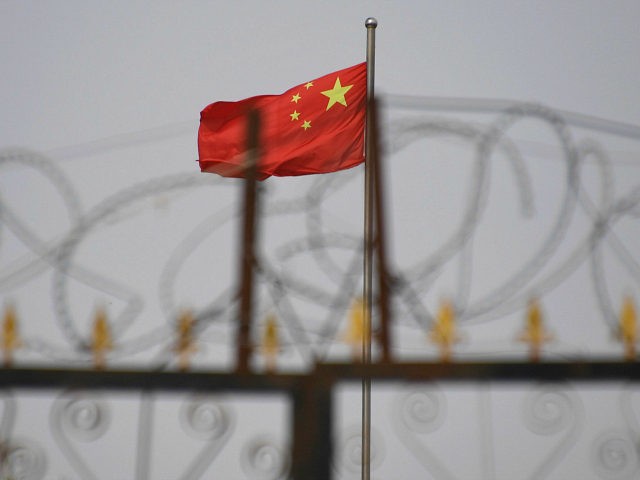Video filmed secretly inside China and uploaded to YouTube over the past month documented about 20,000 concentration camp victims shuttled to textile factories and forced to work 12 hours a day, every day of the week.
Radio Free Asia (RFA) reported Thursday on the videos filmed by Miradil Hesen, a resident of the Aksu province where a major textile factory is located:
In his videos, Hesen gave detailed accounts of young women and other ethnic Uyghurs from the prefecture’s Uchturpan (Wushi) county who are being forced to work at the Aksu Huafu Textile Factory 12 hours a day, with only one day free each month.
Rooms for workers are provided, but workers must provide their own food, said Hesen, now under arrest in eastern China’s Jiangsu province after being sought by police for downloading Instagram onto his mobile phone and for publishing videos criticizing China over rights abuses.
Salaries drawn by forced laborers in Aksu, who earn only 1,500 yuan per month (U.S. $220) are not enough on which to live, and deductions of from 40 to 50 yuan (U.S. $6-7) are removed from workers’ pay for time taken off for reasons not normally allowed, Hesen said.
RFA said it was able to confirm Hesen’s videos using telephone interviews and public domain documents.
Hesen claimed executives in the Asku textile industry made deals with the officials who run the Uchturpan camps to obtain forced labor from detainees. The camps would “release” their prisoners, only for those unfortunates to be marched right into the Aksu textile factories as virtual slaves. RFA spoke to an Uchturpan official who did not deny the arrangement and refused to discuss how the textile company compensated local officials for the shipments of forced labor.
A representative of the company that owns the Aksu Huafu Textile Factory confirmed to RFA that it employs about 20,000 detainees from the Xinjiang concentration camps at the Asku facility. The representative said she was not aware of the precise terms of their employment or compensation.
The Chinese Communist Party (CCP) claims the concentration camps are really huge “vocational training centers” whose “graduates” go on to find productive employment in various regional industries.
The Trump administration has been tightening import restrictions against products made with forced labor, including textiles. To date, five Chinese entities linked to goods made with forced Uyghur labor have been banned from importing those products to the United States.

COMMENTS
Please let us know if you're having issues with commenting.